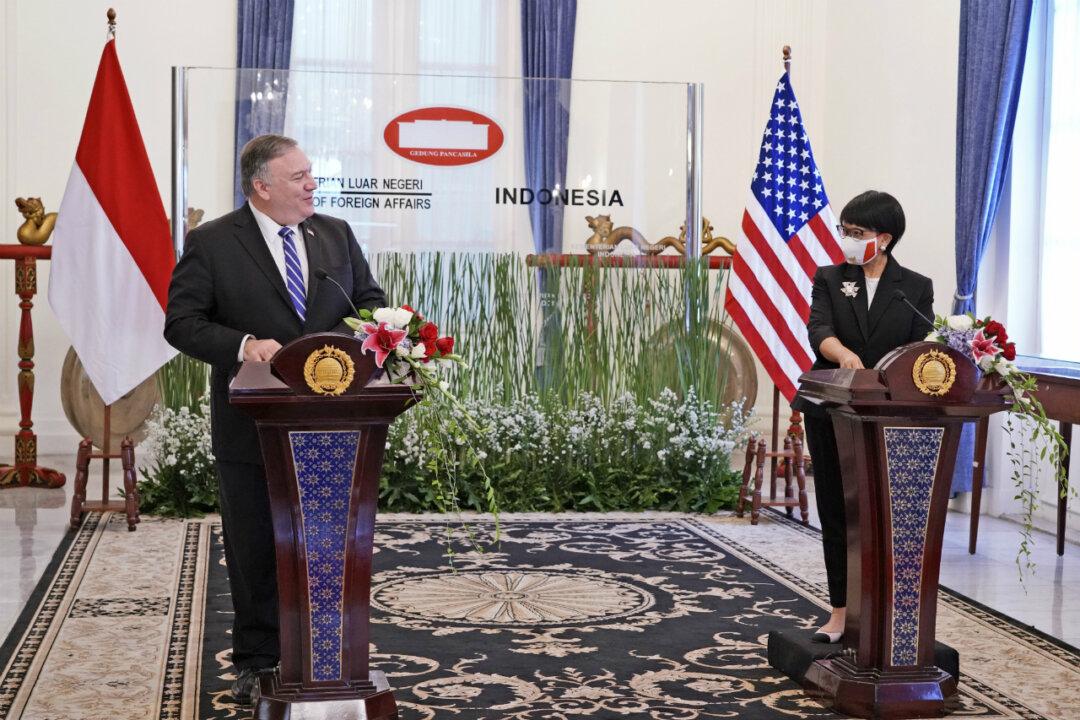U.S. Secretary of State Mike Pompeo on Thursday said Washington would find new ways to cooperate with Indonesia in the South China Sea and respected Jakarta’s efforts to safeguard its own waters while rejecting the Chinese regime’s unlawful claims in the area.
Pompeo’s visit to Indonesia comes amid a five-nation swing through South Asia, where he has sought to strengthen strategic and economic ties amid assertive behavior by the Chinese regime in the region.





